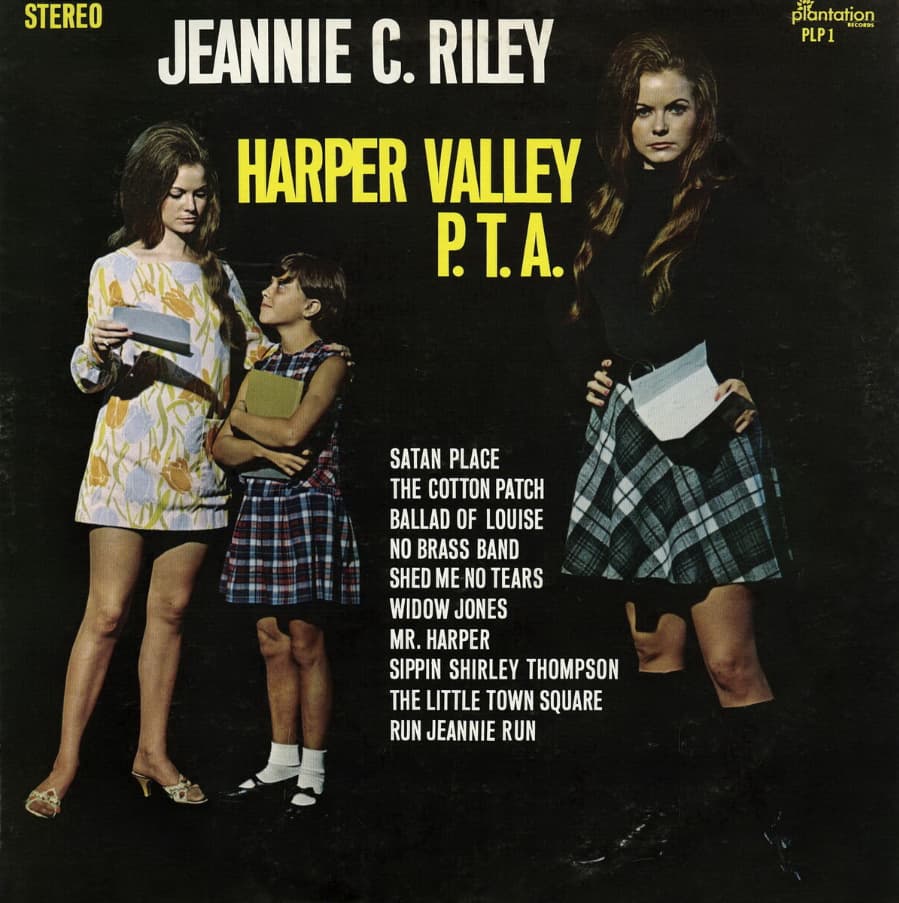
Jeannie C. Riley’s Bold Debut: “Harper Valley PTA”—A Song of Defiance and Social Commentary
When Jeannie C. Riley released her debut single, “Harper Valley PTA,” in 1968, she not only launched her career but also ignited a cultural conversation that resonated across the United States and beyond. This country song, penned by the legendary Tom T. Hall, became an instant sensation, selling over six million copies and making history as the first single by a female artist to top both the Billboard Hot 100 and the U.S. Hot Country Singles charts—though not simultaneously. This remarkable achievement wouldn’t be repeated by another woman until Dolly Parton reached the same heights with her hit “9 to 5” in 1981.
The song’s popularity was not just a testament to Riley’s vocal talent but also to the boldness of its narrative. “Harper Valley PTA” tells the story of Mrs. Johnson, a single mother who receives a scathing note from the local PTA, criticizing her lifestyle and parenting choices. Instead of cowering to their judgment, Mrs. Johnson confronts the PTA in a fiery and unforgettable showdown, exposing the hypocrisy of the very people who dared to criticize her. The song’s narrative unfolds like a short story, revealing the hidden indiscretions of the PTA members, from Bobby Taylor’s advances to Widow Jones’s suggestive behavior. By the end of the song, it is clear that Mrs. Johnson is not only defending herself but also standing up against the double standards that often plague small-town America.
Musically, the track is as compelling as its lyrics. The production, helmed by Jerry Kennedy, features a prominent dobro that gives the song its distinctive country flavor. The instrumentation complements Riley’s sharp delivery, enhancing the song’s narrative punch. The combination of Riley’s voice, the biting lyrics, and the crisp production made “Harper Valley PTA” an anthem of empowerment and resistance.
The song’s impact went beyond the charts, inspiring a film and a television series, further cementing its place in pop culture. For many, “Harper Valley PTA” became more than just a hit song; it was a symbol of standing up against moral hypocrisy and societal pressures. Jeannie C. Riley may have had only one Top 40 pop hit, but with “Harper Valley PTA,” she left an indelible mark on the music world and sparked conversations that would continue for decades.
In a time when country music was often associated with traditional values, “Harper Valley PTA” challenged the status quo and gave a voice to those who felt marginalized or judged. It remains a powerful reminder of the strength and resilience of those who dare to speak their truth, no matter the cost.